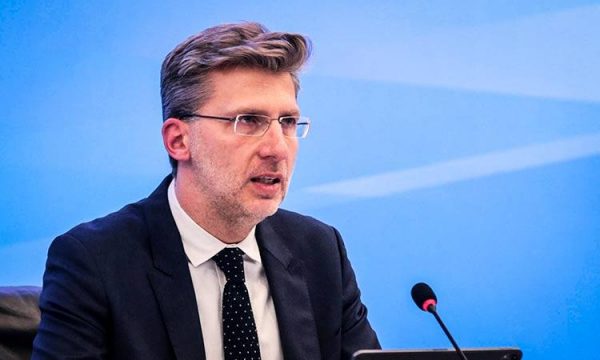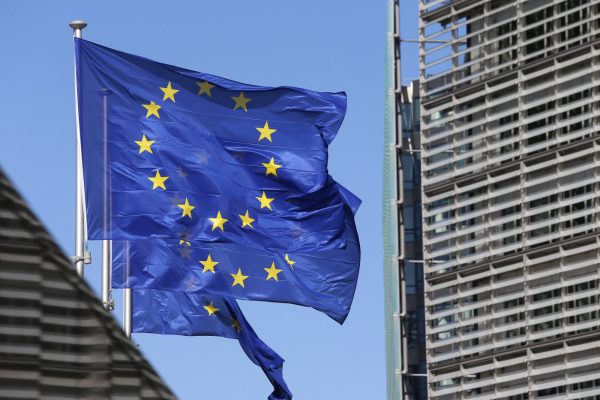
Microsoft’s investment plan for the creation of the three data centers in Attica is unreservedly moving forward. The technology giant, which in the last two years has almost doubled its human resources in Greece, will continue to create jobs, investing in Recovery Fund digital projects.
Theodosis Michalopoulos, Microsoft General Manager for Greece, Cyprus and Malta notes the company’s willingness to participate in any major using the Microsoft platform in a meeting with journalists. He also made clear that investment in datacenters is high on the Microsoft agenda, adding that the choice of Greece was the right move at the right time.
The next step, once the licensing is completed, will be the tender for the selection of the contractor for the “triple” data centers that will be developed in Spata, Koropi and Markopoulo. The strategic priority of the company is to cooperate with domestic companies, with plans being to have the 1 billion euro investment up and running within 2 to 3 years.
Antidote to inflation
Mr Michalopoulos believes that in the environment of internationally galloping inflation there are now many companies that recognize that technology helps reduce production and transportation costs, as well as the automation of processes. It also facilitates the transfer of human resources, which in the current situation is the “key” to cover the gap with which countries are increasingly facing. He also expressed his optimism for the digitization process of the country, noting that a digital momentum has been created in the public sector, which is cultivating a culture of digital transformation.
Growing demand for cloud
The digitization of Greek companies is two-speed. According to market research, 95% of the 30 largest companies in the country already use cloud technologies. However, this percentage falls below 50% when it comes to small and medium enterprises.
Following the growth rates of the group, and in some cases recording better performance, Microsoft Greece recently presented the program to support SMEs with vouchers, through the Recovery Fund. It is also modernizing partner networks to achieve greater penetration.
Seeing that the future is in low-code logic, it will give the opportunity through power apps to non-programmers, to create applications that their businesses need. These are simple applications that do not require special knowledge, such as the organization of appointments or permits.
In the same context, Mr. Michalopoulos placed special emphasis on education in digital skills, emphasizing that the country must integrate programming into schools, and at the youngest possible age.
Latest News

WTTC: Travel & Tourism to Create 4.5M New Jobs in EU by 2035
This year, international visitor spending is set to reach 573 billion euros, up by more than 11% year-on-year

IMF: US Tariffs Shake Global Economy, Outlook Downbeat
IMF slashes global growth forecast to 2.8% as U.S. tariffs create uncertainty and ‘negative supply shock

First Step Towards New Audiovisual Industry Hub in Drama
The project is set to contribute to the further development of Greece’s film industry and establish Drama as an audiovisual hub in the region

Airbnb Greece – Initial CoS Ruling Deems Tax Circular Unlawful
The case reached the Council of State following annulment applications filed by the Panhellenic Federation of Property Owners (POMIDA)

Mitsotakis Unveils €1 Billion Plan for Housing, Pensioners, Public investments
Greek Prime Minister Kyriakos Mitsotakis has announced a new set of economic support measures, worth 1 billion euros, aiming to provide financial relief to citizens.

Alter Ego Ventures Invests in Pioneering Gaming Company ‘Couch Heroes’
Alter Ego Ventures' participation in the share capital of Couch Heroes marks yet another investment by the Alter Ego Media Group in innovative companies with a focus on technology.

Corruption Still Plagues Greece’s Driving Tests
While traffic accidents continue to claim lives on Greek roads daily, irregularities and under-the-table dealings in the training and testing of new drivers remain disturbingly widespread

Pope Francis Died of Stroke and Heart Failure Vatican Confirms
As news of the official cause of death spread, tributes poured in from across the globe. The 1.4 billion-member Catholic Church is united in grief, remembering a pope who championed inclusion, justice, and compassion

Increase in Both Museum Visits, Revenues for 2024
As expected, the Acropolis was the top archeological site in the country, followed by Sounion, Mycenae, the ancient theater of Epidaurus, and Vergina in northern Greece

Where Greece’s Tourists Come From: A Look at 2025’s Top Visitor Markets
The United Kingdom continues to hold the top spot as the largest source of incoming tourism, with 5.6 million seats booked for Greece this summer — up 2.2% from last year. This accounts for 20% of all international air traffic to Greece












![Πλημμύρες: Σημειώθηκαν σε επίπεδα ρεκόρ στην Ευρώπη το 2024 [γράφημα]](https://www.ot.gr/wp-content/uploads/2025/04/FLOOD_HUNGRY-90x90.jpg)



![Ξενοδοχεία: Μεγάλο το ενδιαφέρον για επενδύσεις στην Ελλάδα – Η θέση της Αθήνας [γραφήματα]](https://www.ot.gr/wp-content/uploads/2025/03/Athens-hotels-90x90.jpg)
























 Αριθμός Πιστοποίησης
Αριθμός Πιστοποίησης